-

“The branding, the name, even the photo shots and art direction of Untuckit, all feel very mass-market and mainstream and that’s what resonates with most men who shop,” Meagher said. “Untuckit has a calculated, stealthy secret empire because of its mainstream approach.”
-

“These kinds of big expansion plans, it used to be that you could have a U.S. team go overseas and open up a retail space, but now brands and consumers in other markets really look for that very emotional, on-the-ground consumer interaction and space,” Meagher said. “And being that this would be an L.A. export, Fred Segal has to have the right on-the-ground teams in order to get this going, making sure there’s the right blend of respect to culture and communities. It’s important, from a cultural sensitivity standpoint, each market is treated seriously and it’s not popping up and opening stores based on a cookie-cutter formula.”
-
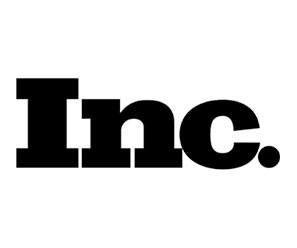
“Creating experiences and an emotional connection will help customers feel like they’re getting more value from a retailer — and that they’re being valued and appreciated in return, says Syama Meagher, CEO of the Los Angeles-based consulting firm Scaling Retail. Small and independent retailers have a greater ability to create a bond with shoppers than larger competitors, she says. Meagher’s advice for store owners: “Don’t think about your customer as someone who’s going to buy something.”
-

“These kinds of big expansion plans, it used to be that you could have a U.S. team go overseas and open up a retail space, but now brands and consumers in other markets really look for that very emotional, on-the-ground consumer interaction and space,” Meagher said. “And being that this would be an L.A. export, Fred Segal has to have the right on-the-ground teams in order to get this going, making sure there’s the right blend of respect to culture and communities. It’s important, from a cultural sensitivity standpoint, each market is treated seriously and it’s not popping up and opening stores based on a cookie-cutter formula.”
-

“’I think it’s an expensive idea. At the end of the day, the inventory they have in these stores is a liability. They know that there are these co-retailing spaces and they know that it costs money to be a part of them. It doesn’t necessarily mean that another retail store has actually endorsed you and spent money to buy your product.”
-

“Pay attention to fabric mixes online. Denim that is 100 percent cotton is very different than 80 percent, so take a look at your favorite pair of jeans first.”
-
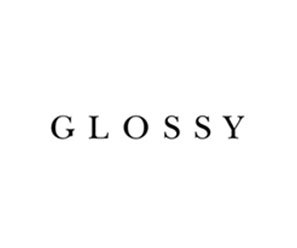
“One issue a lot of DTC brands face when launching, in general, is whether they are creating a luxury brand. It’s like, ‘My cost of goods is so high that I have to create a luxury brand to support my small business.’ That is a big challenge a lot of brands have to face,” said Meagher.”
-

“With J. Crew in New York, they need to diversify, so I’m not surprised to see them jumping on a collaboration with WeWork. But if I were at WeWork, I would actually think about more lateral businesses. Why not host an Apple pop-up shop? Or maybe a Google pop-up? Give members a discount on those products, and give people access to tools and products they might actively use. Is this adding value or is this just marketing?”
-

“I think at the end of the day, when it comes to scale, you have to have your core business priorities,” said Syama Meagher, founder and CEO of Scaling Retail, a retail consultancy. “It’s nearly impossible for any single sustainable company to do every single thing it can to be 100% sustainable to everyone’s standards.”
-

“New retail channels have changed what consumers want from stores, said Syama Meagher, the chief retail strategist for the consultancy Scaling Retail. With people shopping more online, the stores have scaled back their spaces. They are expected to be more experiential and be places where people immerse themselves in a brand experience. “The nature of a fashion company has changed too,” Meagher said. “Fashion is becoming more like a media company.”
-

“[In fashion you can’t] be everything to everybody. With a high-low mixing of brands and the high-low price points, it’s hard to give consumers a focus. You see some brands staying for a couple of seasons, but they are not necessarily generating the revenue because Amazon is not attuned to higher price-point brands.”
-

“New retail channels have changed what consumers want from stores, said Syama Meagher, the chief retail strategist for the consultancy Scaling Retail. With people shopping more online, the stores have scaled back their spaces. They are expected to be more experiential and be places where people immerse themselves in a brand experience. “The nature of a fashion company has changed too,” Meagher said. “Fashion is becoming more like a media company.”
-
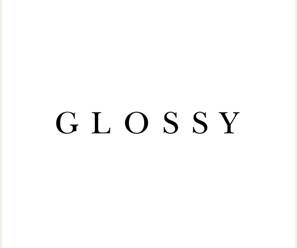
“One issue a lot of DTC brands face when launching, in general, is whether they are creating a luxury brand. It’s like, ‘My cost of goods is so high that I have to create a luxury brand to support my small business.’ That is a big challenge a lot of brands have to face,” said Meagher.”
-

Syama was quoted on work and HR-related strategy in New York Magazine.
-

“New direct-to-consumer brands entering the market have to think like technology and media companies. Aside from a focus on product, greater emphasis should be placed on how they are using content and technology to drive customer engagement.”
-

Syama was quoted on her beauty industry expertise in an article for ABC News.
-

“Creating experiences and an emotional connection will help customers feel like they’re getting more value from a retailer — and that they’re being valued and appreciated in return. Small and independent retailers have a greater ability to create a bond with shoppers than larger competitors. Don’t think about your customer as someone who’s going to buy something.”
-

“Clothing will not have seen the deepest markdown until July 4th, Independence Day. They should be on the lookout for doorbusters- cheap items meant to get them in the door, as retailers will significantly mark these items up just to take the 75% off to entice customers.”
-

“The best time to shop spring and summer products on sale are July 4th and Labor Day. If you live in a place like Southern California, where you can wear these things all year round, take advantage of those sales. [However] customers should watch out for doorbusters that aren’t as promising as they sound. Retailers often pick an item to heavily discount to get people in doors, but there aren’t enough of them or they are old from previous seasons.”
-

“With food trucks becoming more and more open and available, and the kind of migration of bringing that, I actually think that pop-up shops kind of followed suit. Larger online brands are bridging together these empty spaces and starting to find ways to get in front of their customers.”
-

“Optimize your new work flow while at work.”
-

Syama was quoted in Apparel Magazine on the need for timelier action by the industry’s biggest retailers. The article was a discussion on why retail today is about data and experiences.
-

“New retail channels have changed what consumers want from stores, said Syama Meagher, the chief retail strategist for the consultancy Scaling Retail. With people shopping more online, the stores have scaled back their spaces. They are expected to be more experiential and be places where people immerse themselves in a brand experience. “The nature of a fashion company has changed too,” Meagher said. “Fashion is becoming more like a media company.”
-

Syama was quoted on her views of Amazon’s fashion strategy, specifically the introduction of their new private label clothing lines in Digital Commerce 360.
-
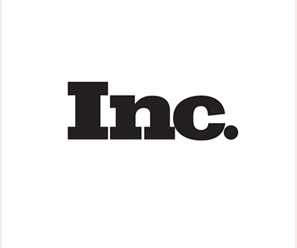
Syama was quoted in Inc. Magazine regarding Trump’s plan to renegotiate NAFTA. She explained how small businesses and fashion startups would need to pivot in order to continue to turn profits.
-

Syama was quoted by California Apparel News on a newly launched fashion incubator in Downtown Los Angeles, FactoryLA. She explained her role as their business strategist as well as what emerging designers need to consider in order to see success.
-

Syama was quoted by Inc. Magazine regarding small businesses moving their offices to Europe and South America in preparation for NAFTA renegotiation.
-

Syama shared her quotes on e-commerce sales and wholesale accounts in StartUp FASHION’s holiday season survival guide for independent designers.
-

Syama was quoted by California Apparel News on the implications of a net neutrality repeal on small businesses.
-

Syama was quoted in California Apparel News on the continued relevance and potential of subscription-based businesses like Stitch Fix.
-

Syama was quoted in California Apparel News on the brilliance and benefits of boutiques teaming up for co-retailing.
-

Syama was quoted by California Apparel News on the precautions designers should take when incorporating drop-shipping into their strategies. The article was a feature on ChicCartel’s “Shop Locally” website launch.
-

Syama was quoted in a Fundera article highlighting what 35 female entrepreneurs wish they’d known before starting their business ventures.
-

Syama was quoted on smaller retailers’ advantage of connecting with shoppers on a more emotional level over larger chain stores.
-

Syama shared her expert advice on driving sales during the holiday season in a feature for Fashion Business Incorporated.
-

Scaling Retail’s Fashion Profit Plan: Fundamentals program was featured as an effective resource for emerging designers by StartUp FASHION. The article explained the fundamental business mistakes fashion brands make and how they may be resolved.
-
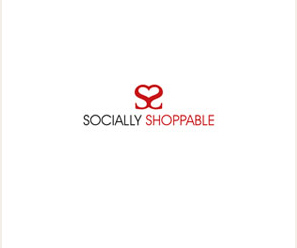
Syama was interviewed by Socially Shoppable for an “Entrepreneur Spotlight” feature. She shared her thoughts on e-commerce, startups and the fashion industry at large.
-

Syama was quoted in a Glammonitor article on the new era for Cuban fashion. She explained the steps it would take to transform the island nation’s fashion industry.
-
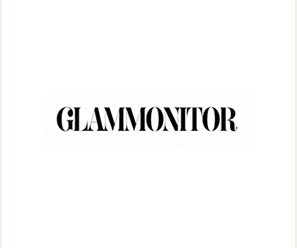
Syama was quoted in a Glammonitor article on the new era for Cuban fashion. She explained the steps it would take to transform the island nation’s fashion industry.
Have a project in mind?
Let’s see if we’re a good fit. Book your 30 minute consultation session.
